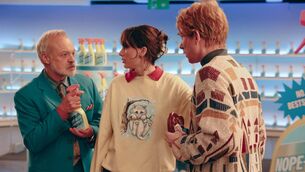Making a pig’s ear of portraying daddy

From Peppa Pig to The Simpsons, why do cartoons portray dads as lazy and incompetent? tries to make amends for Father’s Day.
Dads! Ever get fed up of how you are portrayed on television, in films, in adverts? You can’t all be incompetent nincompoops orabsent workaholics, can you?











